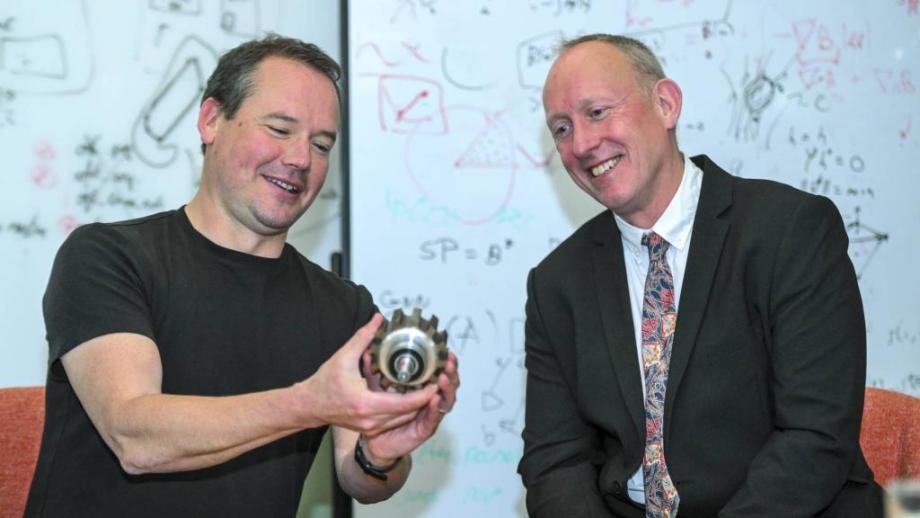The visit came as Monumo was awarded nearly £1M in UK Government funding, with DSIT’s Chief Scientific Advisor given a demonstration of our ML-friendly engine; ‘Anser’. The Anser engine minimises human bias and design preconceptions by using AI to create the best engineering designs at a system level. Monumo’s technology runs up to 10 million simulations a day, identifying the optimal parameters for specific use cases - such as reducing cost, creating efficiencies, or improving sustainability.
Professor Johnson, Chief Scientific Advisor for DSIT, said: “It has been a privilege to visit Monumo today. They are one of the most innovative from a growing number of UK companies using Machine Learning to reduce costs and improve performance across the product lifecycle. Their focus on delivering value through knowledge sharing and collaboration will benefit technology and engineering operations across the country. The use of computational methods to drive product optimisation will safeguard the future social and economic prosperity of this country.”
Dominic Vergine, founder and CEO at Monumo, said: “This visit from DSIT is a testament to Monumo’s hard work and dedication in applying the latest deeptech methods to the redesign of the electric motor. Driven by a desire to move the needle on decarbonisation, our technology has numerous applications across complex engineering problems. We are focused on the EV market initially, seeking to drive wider adoption through optimisation. Just a 5% improvement in motor efficiency would equate to removing gigatonnes of emissions - the equivalent of the total emissions of France and Germany combined. We are intent on using AI and ML to benefit society and help build towards a more sustainable future.”
Image: courtesy of Monumo



